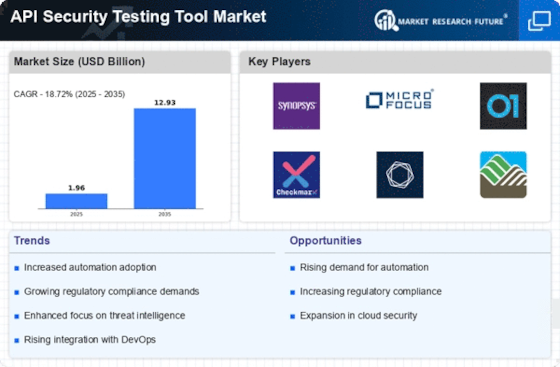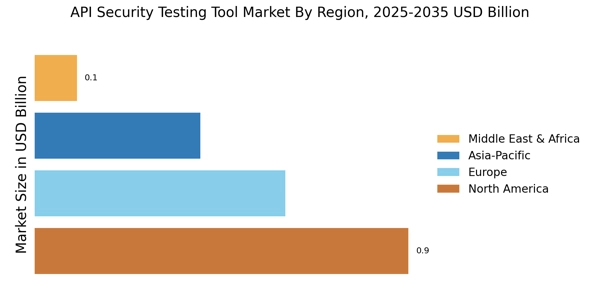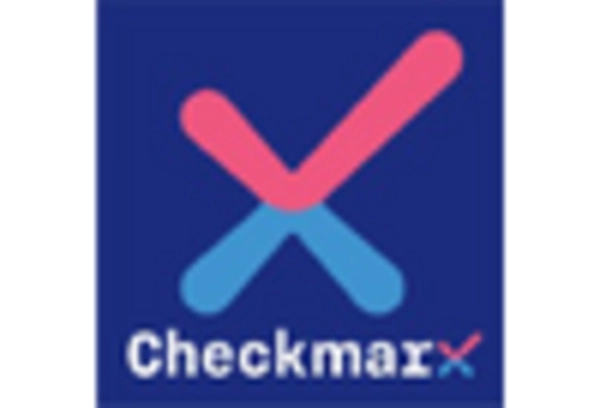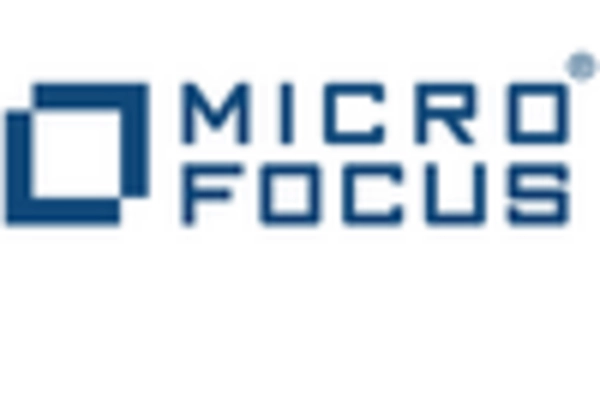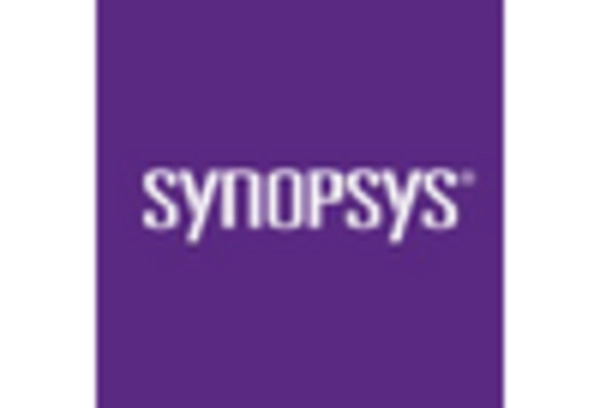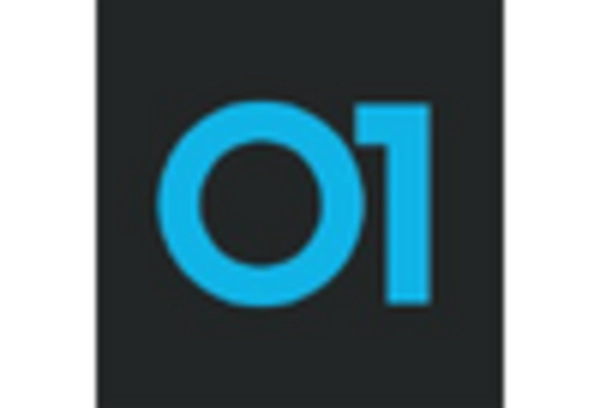Growing Cloud Adoption
The API Security Testing Tool Market is benefiting from the accelerated adoption of cloud services across various sectors. As organizations migrate to cloud-based infrastructures, the reliance on APIs for seamless integration and functionality increases. This shift creates a pressing need for effective security measures to protect APIs from vulnerabilities. Market data indicates that the cloud services market is expected to grow substantially, which in turn fuels the demand for API security testing tools. As businesses recognize the importance of securing their cloud environments, the API Security Testing Tool Market is likely to see a corresponding rise in investment and innovation.
Rising Cybersecurity Threats
The API Security Testing Tool Market is experiencing a surge in demand due to the increasing frequency and sophistication of cyber threats. Organizations are recognizing the necessity of robust security measures to protect sensitive data and maintain customer trust. According to recent data, the number of reported cyber incidents has escalated, prompting businesses to invest in advanced security solutions. This trend is likely to continue as the digital landscape evolves, with APIs becoming prime targets for attackers. Consequently, the API Security Testing Tool Market is positioned for growth as companies seek to fortify their defenses against potential breaches.
Shift Towards Agile Development
The API Security Testing Tool Market is experiencing growth due to the shift towards agile development methodologies. As organizations adopt agile practices, the need for continuous security testing becomes paramount. Agile development emphasizes rapid iterations and frequent releases, which can inadvertently introduce security vulnerabilities if not properly managed. Consequently, there is a growing recognition of the importance of integrating security testing into the development lifecycle. This trend is likely to drive the demand for API security testing tools that facilitate seamless integration with agile workflows, ensuring that security is prioritized without hindering development speed.
Regulatory Compliance Requirements
The API Security Testing Tool Market is significantly influenced by the stringent regulatory landscape that organizations must navigate. Compliance with regulations such as GDPR, HIPAA, and PCI DSS necessitates the implementation of comprehensive security measures, including API security testing. As businesses strive to avoid hefty fines and reputational damage, the demand for specialized tools that ensure compliance is likely to rise. The market is projected to expand as organizations prioritize adherence to these regulations, thereby driving the adoption of API security testing solutions. This trend underscores the critical role of security tools in maintaining compliance and safeguarding sensitive information.
Increased Awareness of API Vulnerabilities
The API Security Testing Tool Market is witnessing heightened awareness regarding the vulnerabilities associated with APIs. As businesses increasingly rely on APIs for various functions, the potential risks become more apparent. Reports indicate that a significant percentage of organizations have experienced API-related security incidents, leading to a greater emphasis on proactive security measures. This awareness is likely to drive the adoption of API security testing tools, as companies seek to identify and mitigate vulnerabilities before they can be exploited. The growing recognition of API security as a critical component of overall cybersecurity strategy is expected to propel the market forward.


